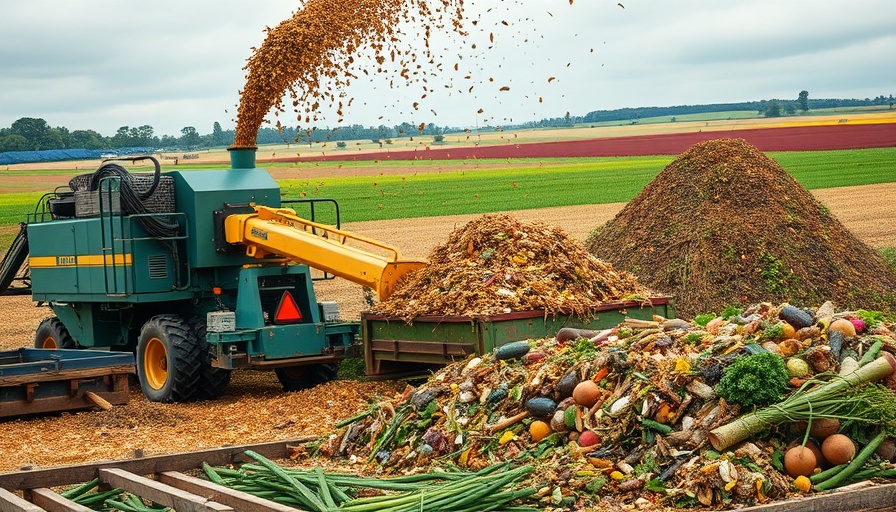
The Impact of Food Waste on Greenhouse Gas Emissions
Food waste is a pressing issue that affects not only our nutrition but the environment as well. Research has shown that nearly a third of all food produced for human consumption is wasted. This staggering statistic is not only a concern for food security but also for resource management, including land, water, and energy. Studies indicate that when food is thrown away, it often ends up in landfills, where anaerobic decomposition generates methane, a greenhouse gas significantly more potent than carbon dioxide in its warming potential. According to Zhengxia Dou, professor at the University of Pennsylvania, everyone is a stakeholder in the agrifood system since we all consume food. Thus, addressing food waste is critical for all of us.
Valuable Recycling Techniques
To mitigate greenhouse gas emissions from food waste, effective recycling methods are essential. The recent study highlighted three key strategies: composting, anaerobic digestion, and 'refeed' practices. Composting allows organic materials to decompose aerobically, enriching the soil and enhancing biodiversity, instead of contributing to harmful greenhouse emissions. Anaerobic digestion, on the other hand, produces biogas that can serve as a renewable energy source, significantly reducing methane output. Refeeding utilizes food scraps as animal feed, aligning with a circular agricultural model that not only diminishes waste but also promotes sustainability.
Comparative Benefits of Food Waste Recycling
When compared to landfill disposal, recycling food waste through these methods dramatically reduces greenhouse gas emissions. The lifecycle established in the study shows that recycling not only helps manage waste but also serves as an integral part of combating climate change. Specifically, Dou notes that the reduction in greenhouse gases from food waste recycling could equate to offsetting methane emissions from nearly nine million dairy cows in the U.S. alone.
Global Perspectives on Food Waste Management
The implications of food waste are not confined to the United States. Countries with significant agrifood systems, including the European Union and China, face similar challenges. Recognizing them as 'methane super emitters,' Dou emphasizes the necessity for these nations to adopt more sustainable waste management practices. Reducing landfill disposal is not a luxury but an urgent need for both ecological and economic efficiency.
Encouraging Sustainable Hospitality Practices
For boutique hospitality professionals, including restaurant owners, hotel owners and eco-lodge operators, adopting food waste recycling practices could not only enhance sustainability but also improve guest experiences. Guests increasingly seek eco-friendly accommodations that reflect their values, making food waste management a desirable feature. By implementing systems for composting, digestion, or refeeding, hospitality businesses can become part of the solution, effectively addressing a critical environmental challenge while appealing to conscientious travelers.
The Path Forward: Actionable Insights for Hospitality Professionals
Implementing effective waste management strategies is a tangible way boutique hospitality professionals can make a substantial environmental impact. Establishing partnerships with local farms for composting or integrating digesters can showcase commitment to sustainability. Additionally, developing educational programs for staff and guests about the importance of food waste management and its benefits can inspire collective action. Providing visibility on how each guest contributes to sustainability goals can enhance their overall experience and commitment to your brand.
In conclusion, as we navigate the complexities of sustainability, understanding and addressing food waste is paramount. By recycling food waste, we not only diminish greenhouse gas emissions but promote a healthier planet. For restaurants, boutique hotels and eco-lodges, being proactive in waste reduction initiatives can significantly boost their appeal and ensure a more sustainable future.
To learn more about effective food waste recycling methods and other sustainability initiatives, consider exploring local resources or engaging in community discussions to broaden awareness. Together, we can forge a path toward a greener, more sustainable hospitality industry.
 Add Row
Add Row  Add
Add 




Write A Comment